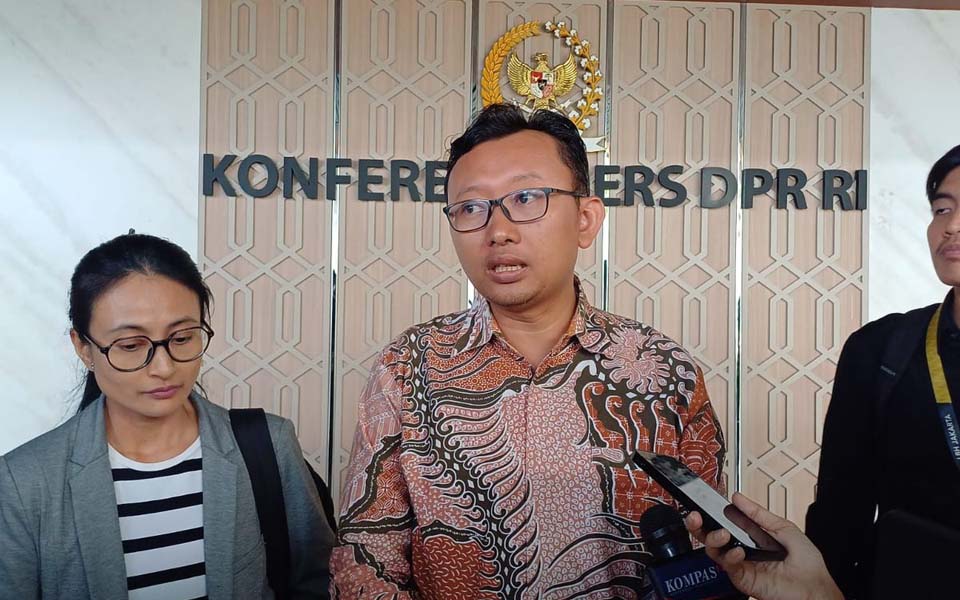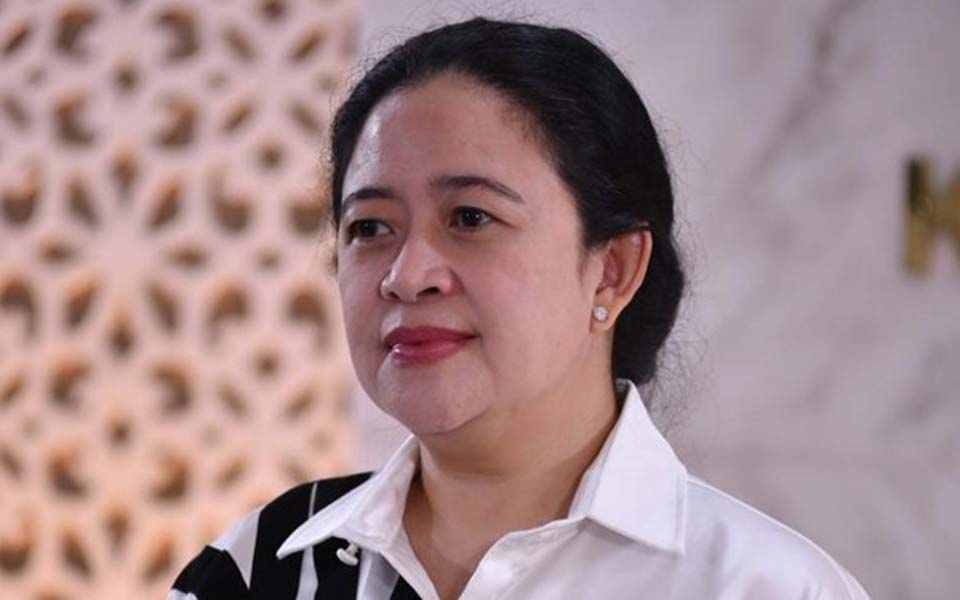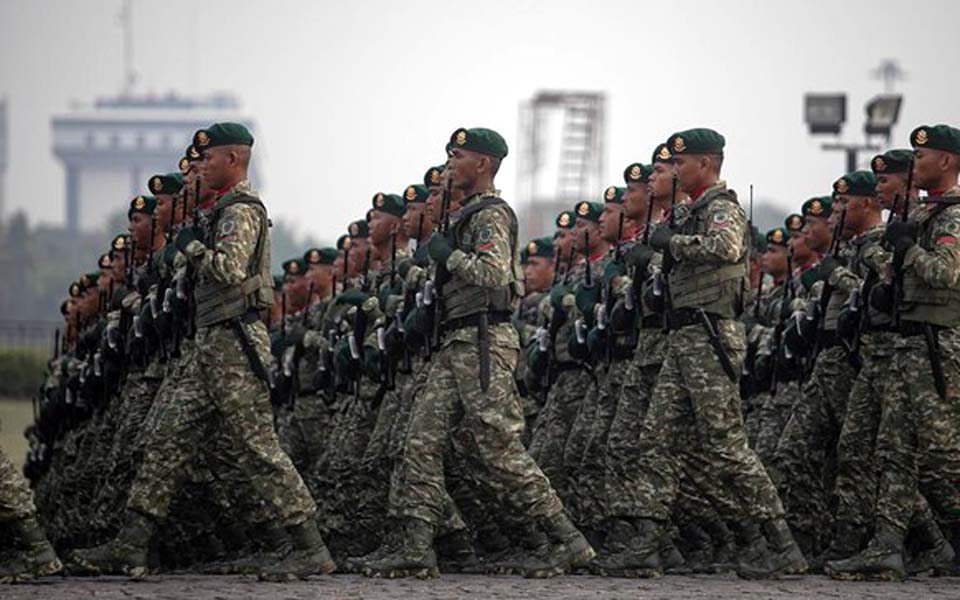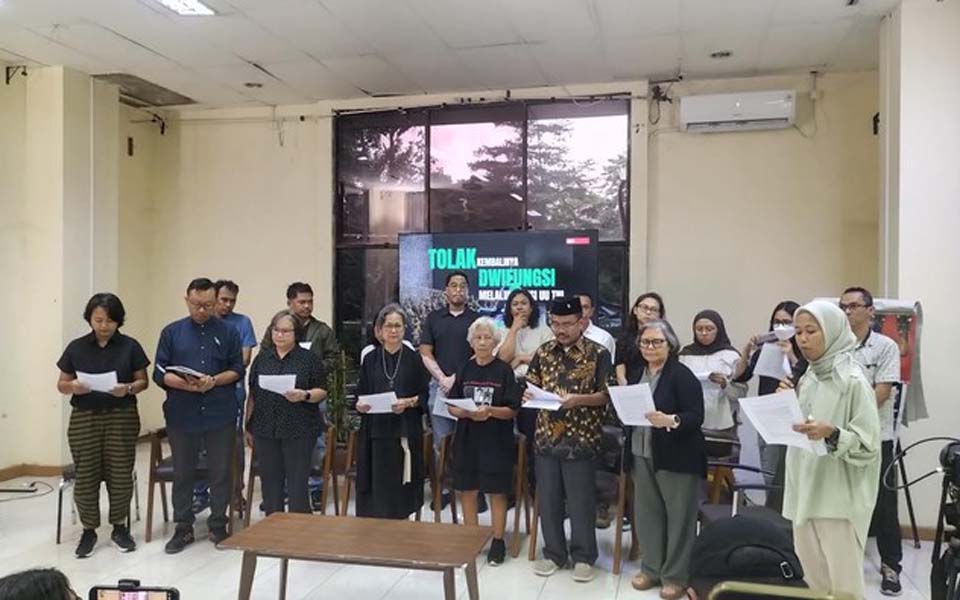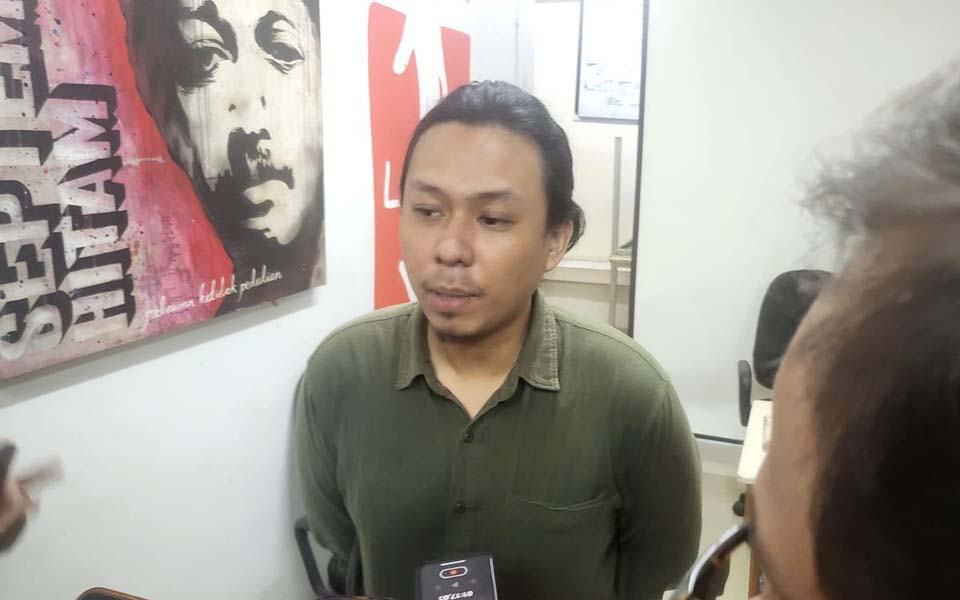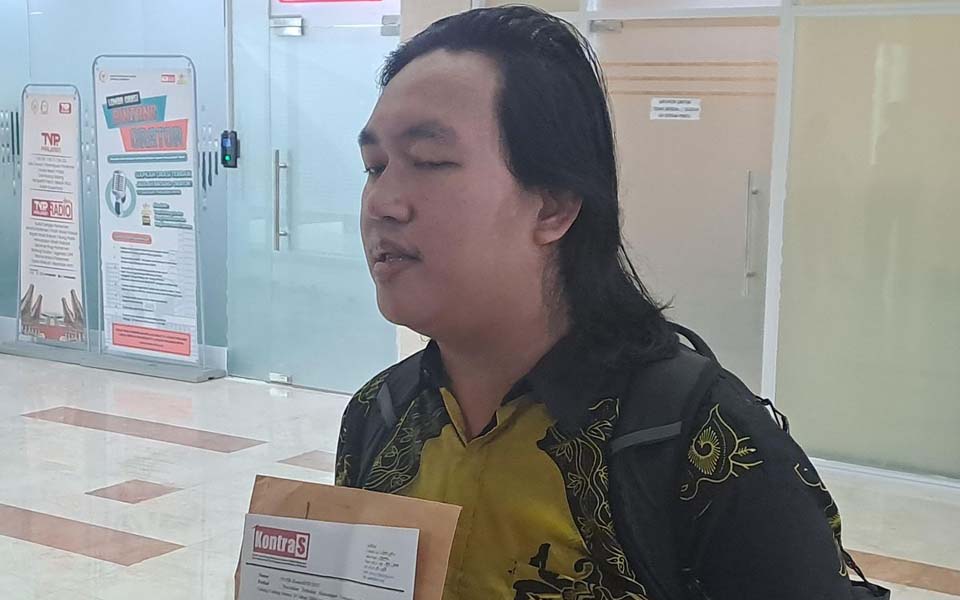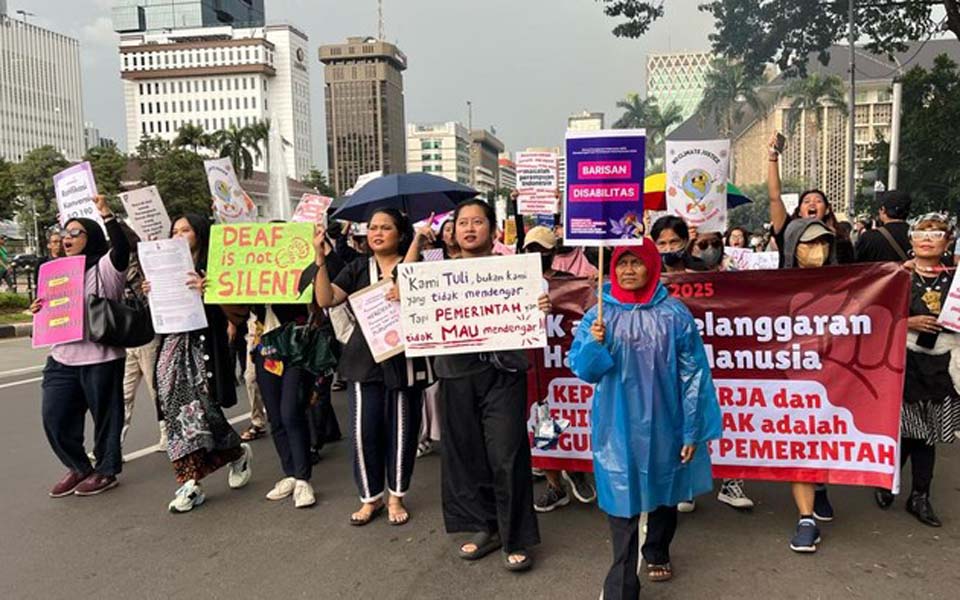Jakarta – The Jakarta Legal Aid Foundation (LBH) has highlighted the recently enacted Law on Sexual Violence Crimes (TPKS) for not fully accommodate the rights of victims.
Earlier, a House of Representatives (DPR) plenary meeting officially passed the draft TPKS into law. The law was enacted during the DPR's 19th plenary meeting at the 4th session for the 2021-22 sitting period.
"The victim's rights related to case handling are not fully accommodated, such as the right to easy access to complaints services, the right to provide testimony and views freely", said LBH Jakarta public defender Citra Referandum in a written release on Wednesday April 14.
Referandum explained that victims of sexual violence are also not accommodated in relation to the right to obtain permission to leave their place of work and receive full wages, the right to be free from being interrogated and the right not to be stigmatised or discriminated against.
In relation to protection meanwhile, Referandum explained that several rights are not accommodated such as the right to obtain legal empowerment and be involved in the process of providing protection as well as the right to safe house services.
"[Including] the right to obtain information in cases where the suspect or defendant is not detained or the defendant has served their sentence", she said.
Moreover, according to Referandum, the right of victims to rehabilitation is not fully accommodated. Yet rehabilitation was considered to be a fundamental part of the laws deliberation process. One of the things cited by Referendum was social, cultural and political rehabilitation.
"Although it regulates rehabilitation in physical, psychological and economic term, the TPKS Law does not yet guarantee the victim's needs in detail", she said.
Referandum gave the example the guarantee of reasonable basic needs for victims as well as facilitating access to obtain decent employment.
New hope for advocates and victims
Meanwhile, Women's Legal Aid Foundation for Justice (LBH APIK) Coordinator Khotimun Sutanti said the enactment of the TPKS Law is a new hope for both advocates and victims of sexual violence as a legal umbrella to obtain their right to justice.
"As well as reinforcing the mandate of preventing sexual violence both on the part of the government as well as the role of society", she said when contacted by CNN Indonesia on Wednesday.
Sutanti said however that the enactment of the law still leaves several issues that are not in accordance with what they had hoped. One of these is related to rape, which is still not accommodated in the TPKS Law.
"So although the offense is referred to in the TPKS Law, it's planned that its formulation will be in the Draft Criminal Code (RKUHP). This is not actually in line with what we had hoped for", she explained.
Sutanti said that there is concern that if the two offenses are separated under two different laws it will make it difficult to enforce the law on the ground. Moreover the deliberations on the RKUHP at the DPR have yet to reach a point of agreement.
"The RKUHP is a complex draft law with various issues and articles which are still controversial among the public, so [the deliberations] could potentially (for the offense of rape) be drawn out before it can be ratified", she said.
So if this situation continues, Sutanti said, like it or not rape case will still have to be dealt with using the old Criminal Code (KUHP), namely Articles 285 to 288 of the KUHP.
Yet according to Sutanti, these articles have long been criticised by many social groups because they are inadequate and do not fully side with the victims.
This is because the article only accommodates the crime of forced sexual relations in the cases of penetration by the penis into the vagina which has to be proven by evidence of physical violence as a consequence of that penetration.
Nevertheless, LBH APIK is still urging the government to immediately issue the TPKS Law which was ratified by the DPR on Tuesday April 12.
Incomplete, but very much needed
Amnesty International Indonesia Executive Director Usman Hamid meanwhile also concedes that the TPKS Law is incomplete but still very much needed.
"Although the TPKS Law is legislation which is very much needed, the law is not yet complete", said Hamid in a written release on Wednesday.
In the same vein as LBH APIK, he is also urging the DPR to ensure that the articles on rape which will be regulated under the RKUHP will be in line with the TPKS Law and prioritise the rights of victims.
Hamid said that the enactment of the law is a historical moment. For a decade, said Hamid, organisations defending women's rights, survivors of sexual violence and the families of victims have persevered with articulating the importance of this law.
The embryo of the TPKS Law was first initiated in 2012 by the National Commission on Violence Against Women (Komnas Perempuan). In 2016, Komnas Perempuan along with LBH APIK and the Service Provider Forum (FPL) finished drafting the law and it began to be deliberated by the DPR.
The deliberations however were blocked because of opposition groups who said that the draft law was pro-adultery.
In relation to this, Presidential Staff Deputy Head Jaleswari Pramodhawardani said that the TPKS Law was enacted thanks to collaboration by all elements of the nation who endeavored to bring Indonesia out of the sexual violence emergency.
Pramodhawardani said that the process of formulating the TPKS Law represented a breakthrough and would become a model in drafting progressive and non-partisan legal products.
"This model of the involvement of various stakeholders, coordination and initiative from the DPR which was pushed through by the Task Force is [an example] of best practices which can be applied to the process of formulating other legal products", said Pramodhawardani in a written release on Wednesday.
Derivative regulations
Minister for Women's Empowerment and Child Protection (KPPPA) Bintang Puspayoga emphasised that the government would immediately start drafting derivative regulations from the TPKS Law in accordance with prevailing mechanism.
"The government and specifically us at the KPPPA are ready to implement this law as well as possible bearing in mind that this law is very comprehensive", said Puspayoga during a virtual discussion on Wednesday.
"Our priority is to immediately draft regulations for the implementation of this law in accordance with prevailing mechanisms", she said.
In addition to this, she also claimed that the ministry will conduct socialisation among the public because they believe that this law is very important.
Moreover, she said, the level of sexual violence is still high. Based on the KPPPA's records, one out of 19 women between the ages of 15-64 years in Indonesia experienced sexual violence in 2021.
In addition to this, based on a national survey of the experiences of children and adolescents in 2021, four out 100 males between the ages of 13-17 years in urban areas also experienced sexual violence.
"And eight out of 100 women between the ages of 13-17 years in urban areas have experienced sexual violence in urban areas", she said.
In relation to this, she said, the ministry will also be coordinating with related ministries and institutions as well as regional governments to ensure the law works well.
"Then conducting socialisation of the law, coordinating with ministries, institutions, provincial, regional, regency and municipal governments to ensure the aspects of prevention and provision of services are integrated", she said.
Puspayoga also asserted that they will bring in the Finance Ministry (Kemenkeu) to discuss assistance for victims of sexual violence. Although Puspayoga did not explain in detail whether or not these discussions will also cover restitution for the victims.
"[The KPPPA will] coordinate with the Kemenkeu in relation to financial assistance for the victims, said Puspayoga.
Aside from the Finance Ministry, she also claimed they would coordinate with the Justice and Human Rights Ministry (Kemenkumham) for the education of law enforcement officials and advocates assisting victims of sexual violence.
"And [coordinating with] the Kemenkumham in relation to education and training of law enforcement officials and advocates", she said.
Police ready to implement law
Indonesian police public relations division chief Inspector General Dedi Prasetyo said that it is hoped that the law will strengthen the Bhayangkara Corps – as the police are known – in prosecuting anyone who is proven to have committed a sexual crime.
"With the TPKS Law it is hoped that criminal investigations conducted by investigators can indict anyone who is proven to have committed crimes as regulated under the law", said Prasetyo when contacted on Wednesday.
He said that law enforcement efforts would be important to provide a deterrent effect for perpetrators. In addition to this, he said, the police can also play more of a role in mitigating sexual violence through the law.
Prasetyo also explained the police are currently discussing a proposal to form a Women's and Children Service Directorate (PPA) at the Criminal Investigations Directorate (Bareskrim). Later, this working unit will be led by high-level police officer with the rank of brigadier general.
Currently, the PPA work unit at the police headquarters level is still under the sub-directorate. "A submission or proposal has already been prepared. Because this will be discussed together with the Ministry of Administrative and Bureaucratic Reform, the Kemenkumham and the State Secretariat", explained Prasetyo. (DAL/yul/mjo)
[Translated by James Balowski. The original title of the article was "Catatan Penting dari LSM, Menteri hingga Polisi untuk UU TPKS".]






